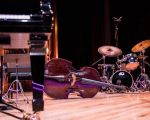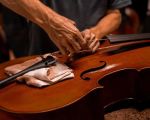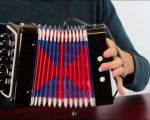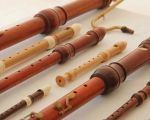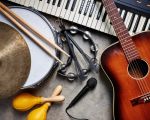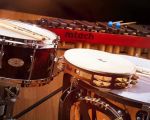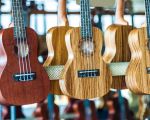- 1-Essentials-of-Blues-Instruments
- 2-Guitar-in-Blues-Music
- 3-Harmonica-and-Its-Role-in-Blues
- 4-Bass-and-Rhythm-Section-in-Blues
- 5-Piano-and-Keyboards-in-Blues-Music
- 6-Additional-Instruments-and-Modern-Variations
- 7-Famous-Blues-Musicians-and-Their-Instruments
1. Essentials of Blues Instruments
Blues music is defined by its soulful expression and distinctive sound, which is largely created by the instruments involved. Understanding what are the instruments used in blues music is key to appreciating the genre’s emotional depth and musical structure. Traditionally, blues bands combine melodic and rhythmic instruments to create a rich and textured sound that supports storytelling through music.
The core of blues instrumentation typically includes guitar, harmonica, bass, drums, and piano, each contributing unique tones and moods. These instruments interact to produce the rhythmic grooves, expressive solos, and call-and-response patterns that are hallmarks of blues.
2. Guitar in Blues Music
The guitar is arguably the most iconic instrument in blues music. From the early acoustic Delta blues players to electrified Chicago blues legends, the guitar’s versatility shines in blues styles. Techniques like string bending, vibrato, and slide guitar are signature elements that guitarists use to convey emotion.
Electric guitars paired with tube amplifiers create the warm, gritty tone synonymous with blues. Players such as B.B. King, Stevie Ray Vaughan, and Muddy Waters famously wielded guitars that became extensions of their expressive voice, shaping the sound of blues worldwide.
3. Harmonica and Its Role in Blues
The harmonica, or “blues harp,” is another defining instrument. Portable and highly expressive, it adds a raw, vocal-like quality to blues music. Harmonica players use techniques like bending notes and overblowing to mimic the human voice’s expressiveness.
Legends like Little Walter and Sonny Boy Williamson II popularized the harmonica in blues, showcasing its ability to complement the guitar and lead the melody with piercing solos or soulful wails.
4. Bass and Rhythm Section in Blues
The bass guitar and drums form the rhythmic backbone of blues music. The bass lines in blues are often repetitive and groove-oriented, providing a steady pulse that anchors the band. Upright bass was common in early blues, gradually replaced by electric bass as the genre evolved.
Drummers keep time and add dynamics with shuffles, backbeats, and syncopated rhythms, all essential to the blues feel. The interplay between bass and drums allows soloists the freedom to improvise while maintaining a solid groove.
5. Piano and Keyboards in Blues Music
Piano adds harmonic richness and rhythmic drive to blues bands. Barrelhouse and boogie-woogie piano styles were fundamental in early blues and continue to influence modern players. The piano can deliver both rhythmic chords and intricate melodic runs, enhancing the texture and energy of blues performances.
Electric keyboards and organs also appear in contemporary blues, expanding sonic possibilities while respecting traditional roots.
6. Additional Instruments and Modern Variations
While the core blues instruments remain consistent, modern blues bands sometimes incorporate saxophones, trumpets, and even synthesizers to add color and depth. These additions reflect blues’ evolution and fusion with jazz, rock, and soul.
Such instruments often appear in larger ensembles or recordings, enriching the blues soundscape while maintaining its emotional honesty.
7. Famous Blues Musicians and Their Instruments
Many blues icons have defined the sound of their instruments through innovative playing and distinctive tone. B.B. King’s “Lucille” guitar is legendary for its soulful voice, while Howlin’ Wolf’s harmonica playing added grit and intensity to his music.
Modern artists continue to honor these traditions while exploring new instrumental expressions, keeping the blues vibrant and relevant today.
For those interested in exploring or purchasing blues instruments, Beat Trigger offers a curated selection and expert advice, helping musicians capture authentic blues tones and elevate their playing.


